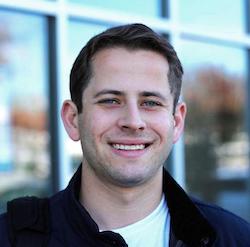An engineering undergraduate who leads a team developing a next-generation radioisotope power system to provide non-stop power for months to years at a time has been named to the Forbes‘30 Under 30 List.
Tyler Bernstein, Class of 2020, is CEO and co-founder of Zeno Power, which recently finished in the first cohort of the Techstars Starburst Space Accelerator in Los Angeles. Zeno Power also has attracted recent investment from 1517, a venture capital firm that focuses on new companies with young founders.

In all, five Vanderbilt University alumni were named by Forbes this year; three are engineering grads, and this is the third of three stories about them. Bernstein and co-founder Jonathan Segal, BS’19, were named in the science category.
Bernstein, who is on leave from Vanderbilt this year, participated in the National Science Foundation I-Corps program at the Wond’ry in 2018. Zeno Power has attracted interest and government funding, too, receiving a letter of support from the Army Futures Command demonstrating interest in the company’s technology and an early $50,000 grant from the Air Force through the SBIR program.
Their idea is to turn the heat from decaying radioisotopes into energy to create consistent power in a device no larger than a tabletop. Zeno is developing a lightweight shielding design to integrate with it, creating a power system with long endurance, high density, high ability to scale, and low maintenance. According to Forbes, one of their systems the size of a window air conditioner could potentially power a building for decades using material from nuclear waste to create a steady supply of clean energy.
Because such a system could enhance U.S. energy security and resilience, the U.S. Department of Defense is interested as well. Potential other applications include providing a small clean energy system to serve schools and hospitals in remote locations.
In a recent interview Bernstein, who is from St. Louis, Mo., said Zeno plans to deliver a prototype by the end of 2020. “It’s an aggressive schedule, but one of the benefits of being a small startup is that we can move pretty quickly,” he said.